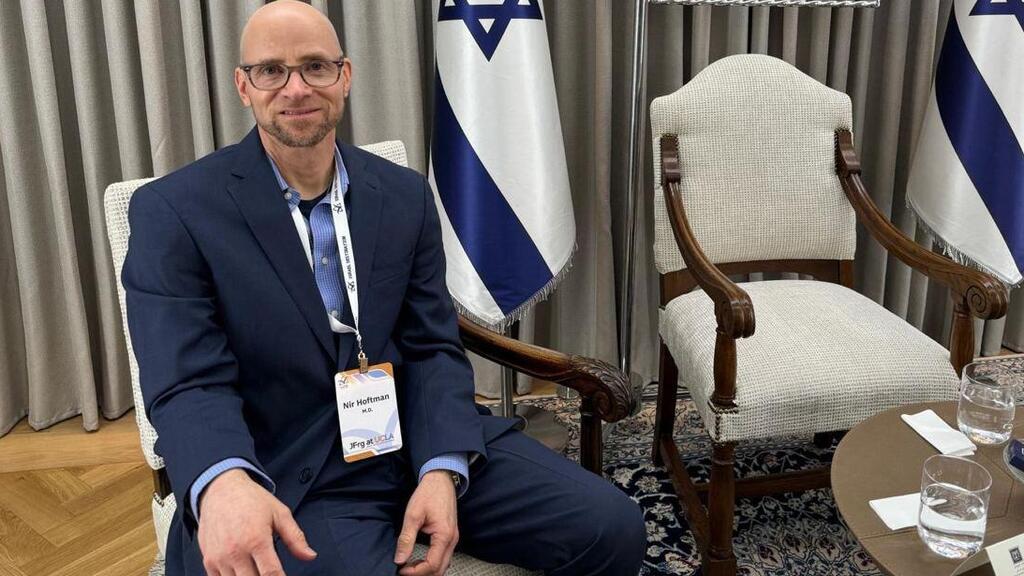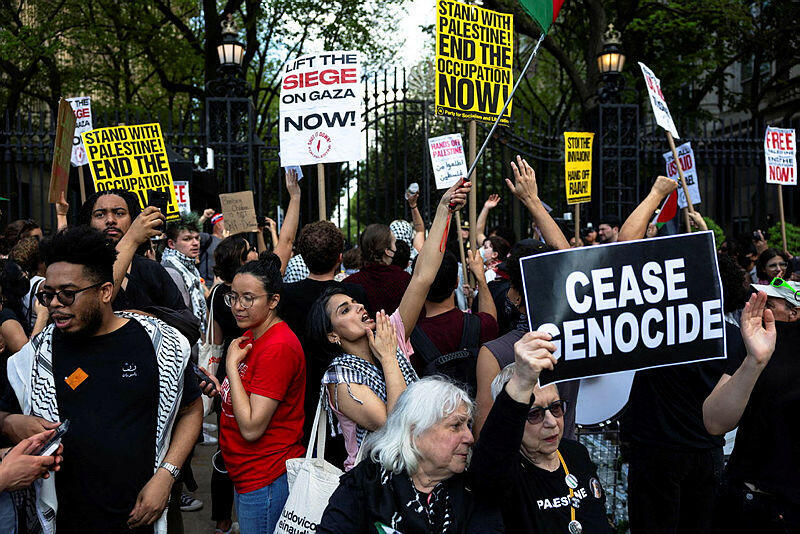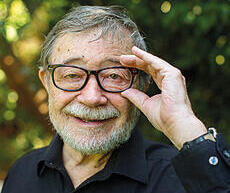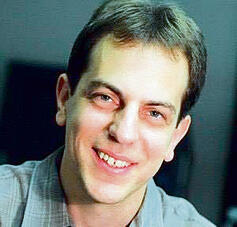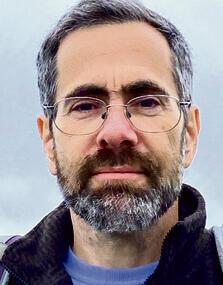Getting your Trinity Audio player ready...
Pro-Palestinian and anti-Israel demonstrations are prevalent on both the East and West Coasts of the United States, creating challenging environments for Jewish professors and students who report feeling targeted across the country.
At the University of California, Los Angeles (UCLA), Prof. Nir Hoftman, an anesthesia specialist with 22 years of tenure, says he has been under attack for his Jewish identity.
"I am a scientist, but since the demonstrations started on campus I have hardly touched research, I am only engaged in a war of survival for our existence as Jews in this country," he said.
According to Hoftman, three protesters stopped him on campus and told him he could not pass. "Someone blindsided me, my earphone flew out of my ear and he ran away with it. The security guards stood by and did nothing. This is anarchy, the Wild West here. This is how we are treated, like stinking Jews that no one cares about. They just throw us in the trash," he said.
Hoftman says he and his Israeli and Jewish colleagues are now gathering evidence of antisemitic incidents on campus to offer testimony before Congress, and then to file a lawsuit against the institution for failing to protect Jews on campus.
"We are struggling here at the university, but it takes a lot of time. People don't understand what is going on here. The police do nothing because they are instructed not to do anything. This is really Germany in the 1930s. Jews are simply not allowed to enter the buildings. It is unbelievable, and It's only getting worse," he said.
Hoftman explains that he has become a target since he began vocally protesting against antisemitism on campus and in the medical school. "It's a terrible feeling because I'm not someone who easily gets scared, and I've been fighting with the school from the beginning, but even someone like me is starting to worry. There are a lot of crazy people around; you never know what these individuals are capable of doing," he says.
"I'm concerned for my home, I worry that someone might come and harm my family, especially since I started being vocal and appearing in the media. I've become a kind of Shai Davidai of UCLA (the Israeli professor who was barred from entering Columbia University)—a symbol, and sometimes it works against me."
Prof. Judea Pearl, who has taught for many years at UCLA, says that the protests are allowed to continue because of the large amount of money that the university receives from Qatar.
"The university thought they would let the pro-Hamas protesters vent their anger and there would be silence here. But on Sunday, Israel supporters held counterdemonstrations and since then there have been beatings and physical and verbal clashes. The most plausible theory is that they don't want to upset Qatar. It pays tuitions and gives scholarships to the campuses," Pearl charged.
Like many faculty members and students at Columbia University, Gil Zussman, a professor of electrical and computer engineering at the New York institution for the last 17 years, is not sleeping tonight. "I spoke with Jewish students on campus and couldn't fall asleep due to excessive concern," he said.
According to Zussman, the protesting students do not represent the university. "We have 30,000 students, and these protesters are a noisy minority that bothers everyone else. Most people are in labs or classrooms trying to study. This group does not represent the majority, but it certainly disrupts my activities, research, and teaching," he added.
"I haven't reached the point of giving up and leaving yet, but I think the university could have managed the situation better. The administration brought in the police, but they did it improperly and incompletely. They did half the work, and it led to another escalation. They removed one student, but there are still many who are there calling to harm Jews," he said.
Zussman has experienced student protests in the past, but according to him this time it is different. "It's aimed specifically at Jews. They say specifically that they don't want people who served in the IDF, they don't want Zionists here on campus. This is discrimination based on religion, and it has been happening consistently for several months at the university," he said.
Yair Minsky, 62, is a mathematics professor who has been teaching at Yale University for 20 years. He is a rational man who is not easily worried, but now he is thought less for himself, and much more for Israel.
"This morning they dismantled the encampment here without violence and in a restrained way. Yale is generally behaving reasonably," Minsky said, "but it is a difficult problem. I don't think that I or other Israelis here have anything to fear, but I do think that everyone who cares about Israel should be very worried."
Why?
"What's happening on the campuses is not pleasant and I hope it calms down, but what is more important to me is what it means about Israel's situation. In the end, these demonstrators are children who know almost nothing about the conflict and are stuck in seeing everything as either good or bad, but it does show that Israel now lacks the serious support it needs. You want to believe that, like many young people, they will grow up and learn that the world is not black and white, but you can't be sure of that, and before long they will be the decision-makers in America."
What if everything you see worries you the most?
"The way in which Zionism has become a dirty word, the frequency with which I hear that being a Zionist is like being a Nazi. If there is a lesson that Israel must learn, it is that it must act more intelligently at the diplomatic level. I have had many arguments with friends about this. As much as I agree that Israel should destroy the capabilities of Hamas, we must now mark a realistic path forward for Gaza, because it doesn't work."



